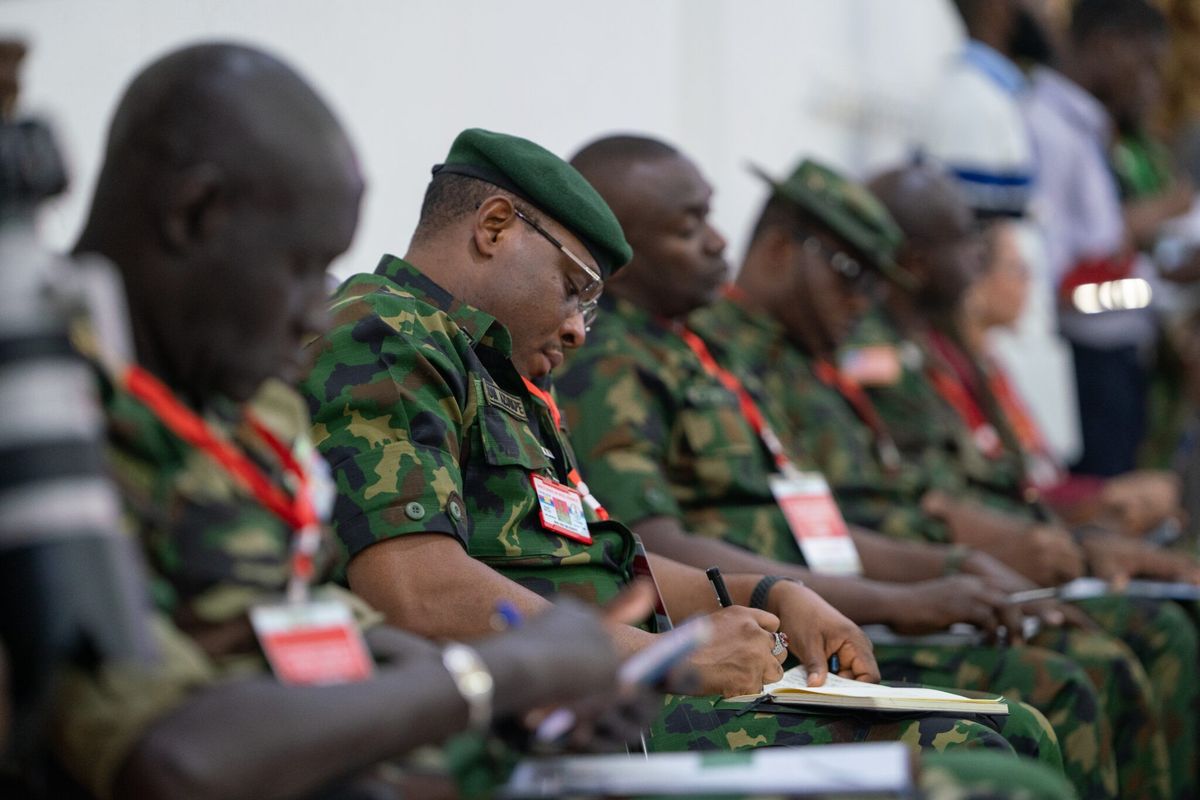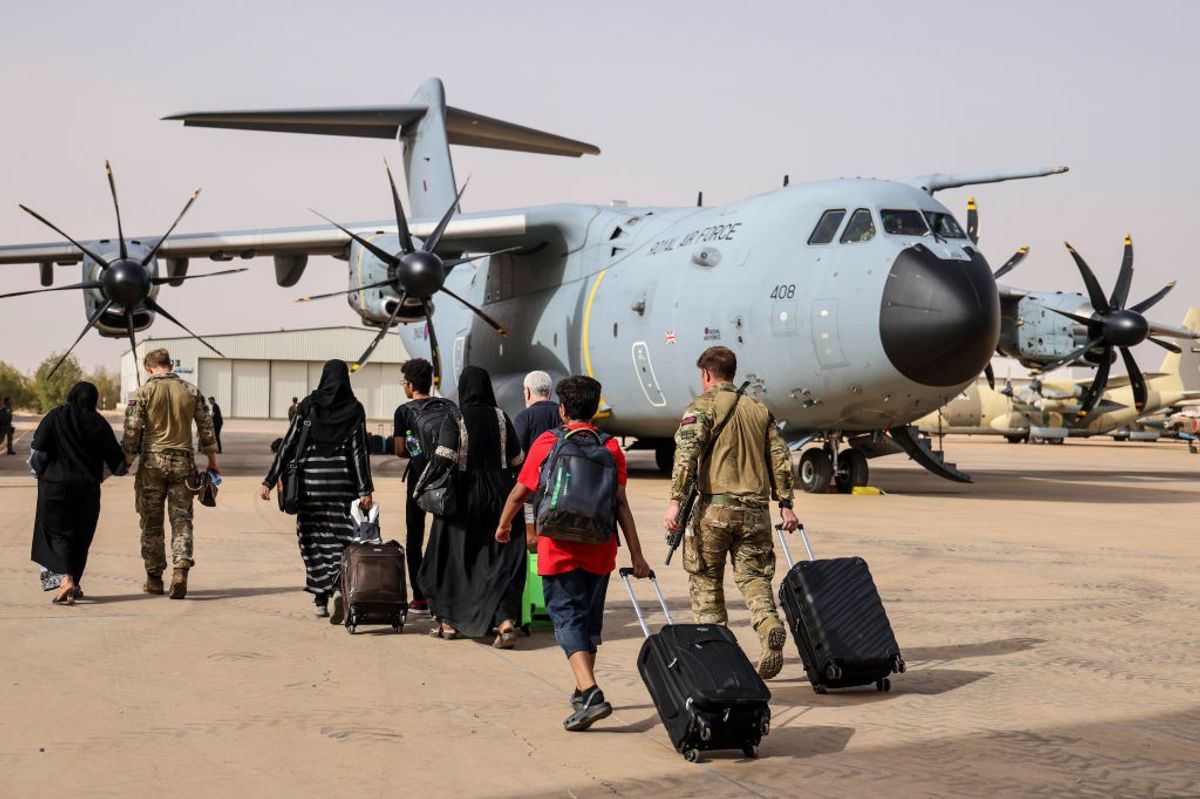Last February, President Donald Trump issued an Executive Order calling on the Department of Treasury to review the 2010 Dodd-Frank Wall Street Reform and Consumer Protection Act enacted in the wake of the 2008 financial crisis. One Dodd-Frank provision the Trump Administration would like to suspend is Section 1502, which requires U.S. companies that obtain tin, tungsten, tantalum, and gold from the Democratic Republic of Congo and adjacent countries to document for the Securities and Exchange Commission whether their activities contribute to financing conflict.
The administration, as well as some in Congress, argues that the regulation is burdensome to businesses and has even exacerbated, rather than ameliorated, violent conflict. They contend that Congolese miners lost income due to the regulations and turn to the very militias targeted by the regulation for an alternative livelihood.
But facts on the ground are to the contrary. Repealing Section 1502 is shortsighted and directly threatens U.S. security and economic interests in Central Africa. Rather than retreat from traceability, the U.S. government should pursue a more robust regime – parallel to the Organization for Economic Co-operation and Development’s (OECD) Due Diligence Guidance. The U.S. should go further than the mining sector, covering all natural resource industries – including timber, fisheries, and fossil fuels such as natural gas and petroleum. Time and again, natural resource extraction has been linked to insecurity and instability. The impact of illegal and unregulated mining in Central Africa provides just one of many cautionary lessons.
Two decades of war in the Democratic Republic of Congo have left 2.2 million people displaced and 5.9 million without food. The connections between the mining industry and the prolonged conflict are well-established – dozens of militias that operate in the country continue to profit from the mining industry by controlling mines and taxing the movement of minerals along routes under their control.
While these minerals – which are critical components in personal electronic devices – are not at the core of the conflict in the DRC, they have certainly helped sustain it, made the violence more intense, and undermined peace efforts by giving fuel to militias operating in the lawless regions of the country.
Even where mines are not linked directly to conflict, their effect can still be destabilizing. For example, in the western part of the country, mining is undermining peace and prosperity, because the informal, largely unregulated industry siphons money out of local economies and traps workers in poor working conditions and poverty. This situation, in turn, undermines good governance and instead fosters an environment ripe for corruption and abuse, further exacerbating the mismanagement of the country’s natural riches.
Whether by contributing directly to conflict or undermining economic development, illegal and unregulated mining has direct implications for U.S. security and economic interests in the region. Beyond the human rights case – which is a significant in and of itself – the illegal trade of minerals mined in the DRC has contributed to the growth of regional illicit networks. The dynamics of the trade are not nationally bounded. Illicit groups in neighboring states take advantage of and even monopolize the region’s permeable, ungoverned borders to smuggle other harmful goods – from weapons to ivory.
While terrorism, as the Trump administration views it, is not a major threat in this part of the world, the preconditions for religious extremism exist there. The administration’s redefining of terrorism to focus solely on religious extremism does harm to efforts in the Central Africa region and others by not focusing on the factors that any terrorist organization – regardless of its ideology – can take advantage of.
Beyond local and national security implications, the unfettered mining industry threatens U.S. economic interests. The instability fomented by mining creates an environment hostile to business. The recent kidnapping and ransoming of five workers from a mine operated by a Canadian company in the eastern part of the DRC demonstrates the risks of investing in the country’s resource industries.
The World Bank ranks the DRC 184 out of 190 countries in terms of places where good business practices exist, while the U.S. Department of State highlights political uncertainty, endemic corruption, difficulty enforcing contracts, and weak judicial institutions as just some of the challenges to business.
With an estimated $24 trillion of untapped mineral resources, promising economic growth, and a growing commitment to attracting foreign direct investment, the DRC should be one of the wealthiest countries in Africa. But instead, a mix of unregulated and unenforced mining and poor governance has trapped the country in an exploitative extraction economy with minimal reinvestment in its community. This, in turn, results in a lack of diversification in the country’s economy.
It is worth noting that many of the destabilizing consequences of illegal and unregulated mining extend to other natural resources. The concept of the “resource curse” is not new. In Central African Republic, for example, armed groups tax the logging industry, and foreign companies pay the groups for protection, giving militants access to resources and emboldening them. Along the Gulf of Guinea, foreign fishing vessels and illegal fishers are putting increasing pressure on coastal fisheries upon which communities depend for livelihoods and sustenance. Off the eastern shores of Africa, distant water fleets and illegal fishers have contributed to an uptick in piracy in Somalia, showcasing how economic and food insecurity can proliferate into other security threats.
Whether it’s fish caught off the Gulf of Guinea, timber felled in the Central African Republic, or minerals pulled from the earth in the DRC, the exploitation of resource industries by militias and other nefarious actors depends on access to external markets. This is why traceability throughout the supply chain – both of resources and the financing infrastructure that support their extraction – is a key first step in making sure profits from resources do not inadvertently, or by negligence, wind up in the hands of those undermining U.S. foreign policy. Requiring American companies to conduct due diligence throughout their supply chains – starting at the place where minerals are extracted, fish are caught, or trees are cut – is a serious way to make sure U.S investments abroad, a stated priority of this administration’s foreign policy, don’t end up undermining U.S. interests and security by sowing the seeds of instability.
Traceability, however, is not a silver bullet by itself, and the effectiveness of Section 1502 of Dodd-Frank is widely debated. Resource extraction has destabilizing externalities, which range from conflict to civil discontent. To combat these effects, transparency in the resource extractive industries must also be a requirement for access to U.S. markets.
On top of requiring transparency and traceability, the U.S. government should also set money aside for investments in good governance and anti-corruption, as well as broad-based economic development. The Trump administration prioritizes foreign direct investment as a principle tool of its foreign policy, but the business-alone model is insufficient. Last March, 225 businessmen and women sent a letter to Secretary of State Rex Tillerson calling on the U.S. to double down on global economic leadership. “America’s diplomats and development experts,” they wrote, “help build and open new markets for U.S. exports by doing what only government can do: fight corruption, strengthen the rule of law, and promote host country leadership to create the enabling environment for private investment.”
Violence and insecurity will continue to destabilize Central Africa unless businesses and the global market place take the necessary actions toward transparency and traceability across the supply chain and the U.S. government steps up its efforts with leadership and necessary foreign assistance.













